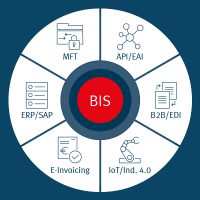How will Brexit Impact the UK Financial Services Sector?
 The financial services sector is of key importance to the UK economy, while the continued success of the City as Europe’s principle financial services hub is a central theme in the ‘Brexit’ debate. What are the pros and cons of ‘Brexit’ and how might it influence the regulatory landscape, economic fortunes of the sector and cross border trade?
The financial services sector is of key importance to the UK economy, while the continued success of the City as Europe’s principle financial services hub is a central theme in the ‘Brexit’ debate. What are the pros and cons of ‘Brexit’ and how might it influence the regulatory landscape, economic fortunes of the sector and cross border trade?
London, of course, is a nerve center for financial services in the European region, which has been an integrated landscape of members spanning the European Economic Area (EEA) freely accessing each other’s markets. The overarching regulations have functioned at an EU-wide level, with various market authorities overseeing everything from basic banking services tied to lending and deposits to credit ratings and trade accounts.
The UK leads Europe’s financial services industry but, as Brexit looms, there is uncertainty as to how the sector will operate once the UK leaves the bloc. So, how will UK financial services cope with Brexit?
With the March 2019 deadline drawing closer, The U.K. will navigate its transition away from the EU, while likely seeking to strike trade and financial services pacts with any number of countries that lie outside the European Union (and will do so, no longer under the guiding policies of EU regulations).
How will Brexit affect the Technology landscape?
Brexit will definitely bring a certain amount of IT overhead with it. Firms will need to be prepared to integrate their front office with back office systems, either in part or in full, to cope with the changes in regulations, business units, or even the location of their units, all of which might possibly require further training and innovation.
Moreover, there might be greater intricacies regarding transmission, security, retention, and usage of data if the UK and the European Union do not come to an amicable resolution. Many clearing houses, currently run from London and the European Union, will naturally want them to run from within its own boundaries in the future. Thus, many firms might even lose access to the existing trading venues.
Brexit will create a plethora of various IT opportunities for IT firms. Obviously, there will be a huge impact through job cuts in the bank sector due to Brexit, but doors will also open in other sectors such as the firms’ IT software. There will be new changes introduced to the banking systems of the UK, post Brexit. These changes will affect banks’ front- and back-end systems and the processes. At the same time, drastic changes will be required to cope with the new regulations of post- Brexit UK. For instance, for EU member-state banks to continue to trade with the UK, they will have to modify their compliance systems to take into account the variations in the UK regulations. One example would be of exporters / importers that will require two different customer identification numbers, one each for the UK and the EU. This will naturally burden the back-end IT systems and will likely affect various other sectors of the banks as well.
Likewise, UK banks will have to change their payment systems. After moving out of the European Union, the Single Euro Payments Area (SEPA) rules and benefits will not be applicable. This will increase overhead for the UK banks’ corporate customers while paying and collecting funds from Europe, as using UK bank accounts will require an amendment in the payment systems.
The UK will still need to continue transactions with the European Union and persist in reinforcing trade ties, forcing the UK banks to come up with new or improved payment systems for maintaining efficient payment gateways with other geographies beyond the European Union.
Thus, UK banks will need training and innovation to cope with post-Brexit changes. Adoption of more agile and modern systems will be required by the financial firms to contend with rapid changes quickly, if they want to stay at the vanguard of their industry. Data analytics would be helpful in swiftly evaluating, modeling, and forecasting the outcomes of possible negotiations.
Greater complexity in best practices for data retention, security, transmission, and usage between markets in Europe (European Union and European Economic Area) and beyond is liable to elicit a rise in the investments toward data centers and shared services. If firms cannot access trading venues or clearing services post Brexit, they might be forced to try alternatives such as the distributed ledger technology (blockchain).
In a nutshell, UK banks should show the agility which can aid in the creation of new innovative systems or emphasize areas such as mobile and branchless banking experiences, automated claims management, and many more areas, to face such challenges.
Integration will be the driving force behind digitalizing banks and financial services business transformation post Brexit. To ensure that secure and reliable information can flow throughout business networks, seamless integration of all systems, applications, business partners and cloud services is crucial.
Thank you for your message
We appreciate your interest in SEEBURGER
Get in contact with us:
Please enter details about your project in the message section so we can direct your inquiry to the right consultant.
Written by: Ulf Persson
As SVP Strategic Product Management and Analyst Relations, Ulf is responsible for strategic product management, product marketing, global analyst relations and leadership with regards to SEEBURGER integration technology, platform and integration services. This also includes strategic sales and marketing initiatives. Ulf works across multiple industry verticals such as Financial Services/Payments, Automotive, Logistics, Utilities, Retail, CPG and Manufacturing. Ulf has more than 30 years of global business and technology experience working with product and solution delivery of integration technologies (EAI, EDI, B2B, MFT, API, etc.), Analytics and Big Data, Cloud Services, Digital Transformation and various industry initiatives. Before joining SEEBURGER in October 2016, Ulf worked in various global leadership roles with international business integration technology and cloud services providers.





